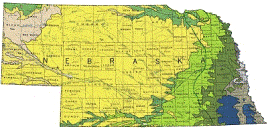United States Geological Survey

United States Geological Survey: Staff Publications
Document Type
Article
Date of this Version
7-1-2017
Citation
Science of the Total Environment 609 (2017) 68–76. http://dx.doi.org/10.1016/j.scitotenv.2017.07.004
Abstract
Interest in the adverse effects of rodenticides on birds has focused primarily on raptors. However, non-raptor birds are also poisoned (rodenticide exposure resulting in adverse effects including mortality) by rodenticides through consumption of the rodenticide bait and contaminated prey. A literature search for rodenticide incidents (evidence of exposure to a rodenticide, adverse effects, or exposure to placebo baits) involving non-raptor birds returned 641 records spanning the years 1931 to 2016. The incidents included 17 orders, 58 families, and 190 non-raptor bird species. Nineteen anticoagulant and non-anticoagulant rodenticide active ingredients were associated with the incidents. The number of incidents and species detected were compared by surveillance method. An incident was considered to have been reported through passive surveillance if it was voluntarily reported to the authorities whereas the report of an incident found through fieldwork that was conducted with the objective of documenting adverse effects on birds was determined to be from active surveillance. More incidents were reported from passive surveillance than with active surveillance but a significantly greater number of species were detected in proportion to the number of incidents found through active surveillance than with passive surveillance (z = 7.61, p < 0.01). Results suggest that reliance on only one surveillance method can underestimate the number of incidents that have occurred and the number of species that are affected. Although rodenticides are used worldwide, incident records were found from only 15 countries. Therefore, awareness of the breadth of species diversity of non-raptor bird poisonings from rodenticides may increase incident reportings and can strengthen the predictions of harm characterized by risk assessments.
Included in
Geology Commons, Oceanography and Atmospheric Sciences and Meteorology Commons, Other Earth Sciences Commons, Other Environmental Sciences Commons


Comments
U.S. government works are not subject to copyright.